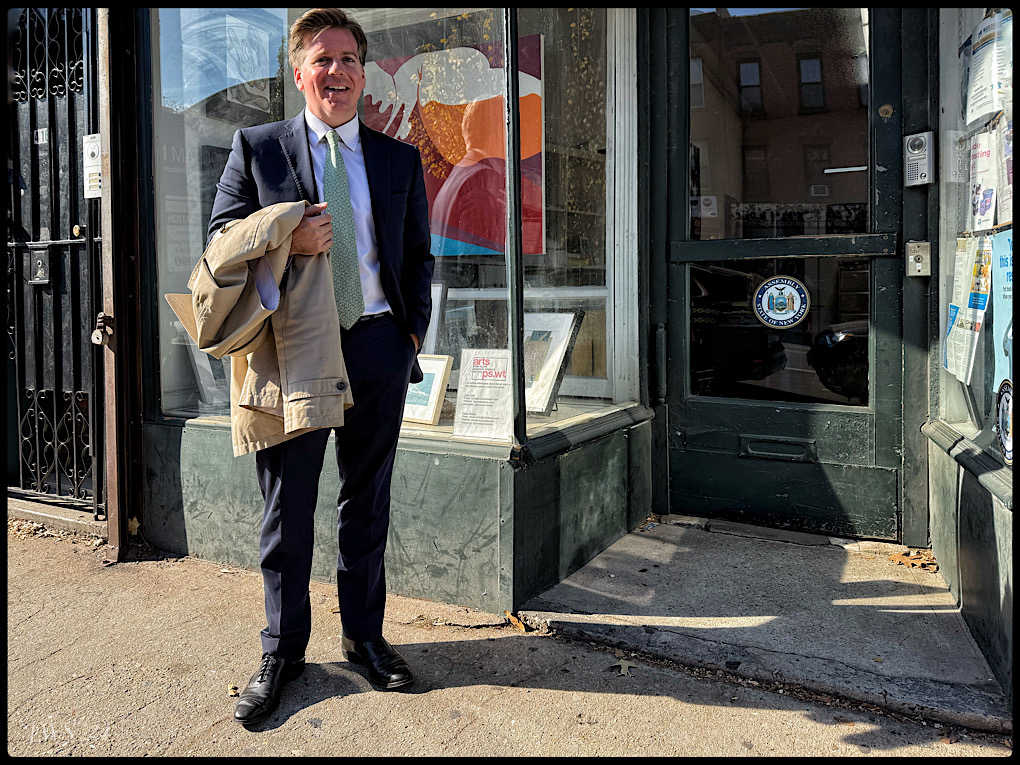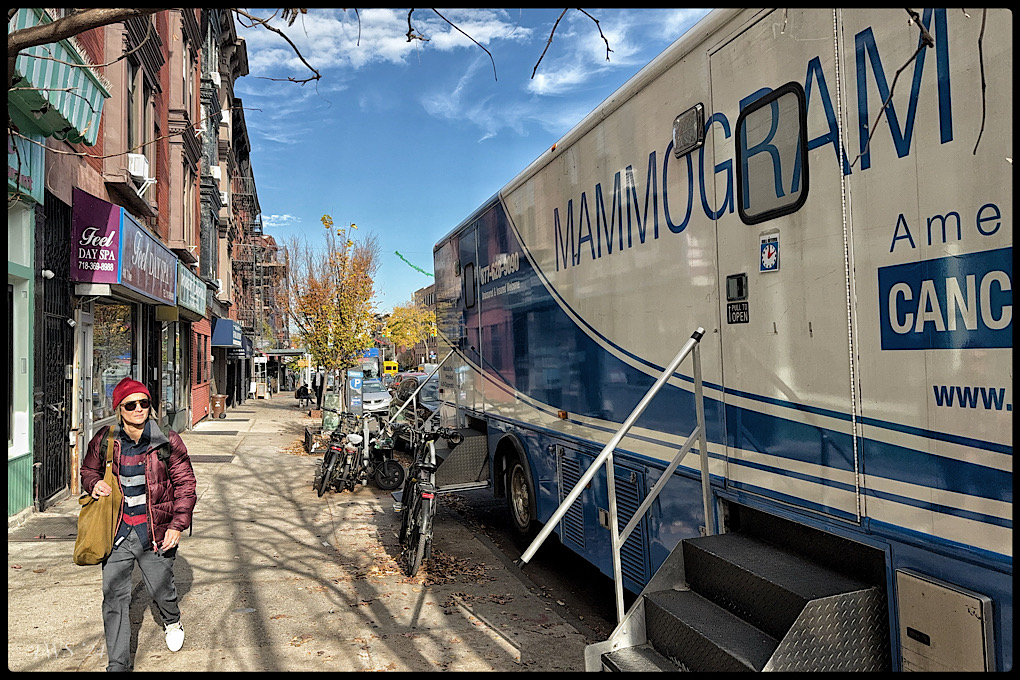If you’re a native of Park Slope and have been putting off getting your mammogram, the American Italian Cancer Foundation has you covered. The AICF offers free screenings for any and all who may need them in its mobile mammogram bus, which stops at a different location in the five boroughs every day of the year. The bus is operated by healthcare professionals who guide patients through the process and conduct a physical exam before the screening, and is equipped with state-of-the-art 3D mammography equipment added just this year. Today, the bus was parked in front of the offices of state assemblymember Robert Carroll of the 44th district, with whom the AICF coordinates for a yearly visit.
“It’s always full or nearly full, even though this is a fairly affluent neighborhood, it still fills up,” says Mary Kay Seery, the assemblymember’s director of constituent services and community affairs. The bus has been visiting their office for many years, and constituents know when to expect it, either from routine, or because Carroll puts the word out on his social feeds and other communications to remind them.

Both Seery and Carroll agree that the AICF’s mammogram bus succeeds on the basis of its practicality. “Healthcare is not always also about cost, it’s about convenience and opportunity, and the AICF provides that in this case,” says Carroll. According to Seery, that convenience and opportunity is a decisive factor to “push people to do what they’re supposed to do.” A breast cancer survivor herself, Seery says that she probably would not get herself checked as often if it were not for the bus.

While cost is less of a factor here than in other parts of the city where the mammogram bus operates, it is not eliminated altogether. Out-of-pocket costs for mammograms range from $200 to $300, and could likely cost even more with the latest tech similar to that used by AICF. As Americans have been squeezed from rising costs across the board post-pandemic – from rent to food to healthcare – with wages that have largely not kept up, it’s not difficult to imagine that people even in this “fairly affluent neighborhood,” as Seery described it, would seek out cost-saving services like this one. Carroll is conscious of the need for broader reform, and approaches the issue with a delicate balance of both realism and idealism. “You could say it’s very frustrating globally in a nation like ours that is so wealthy that we have to rely on nonprofit and foundation-supported services like this,” he says, “but I know that it serves a real need.”












